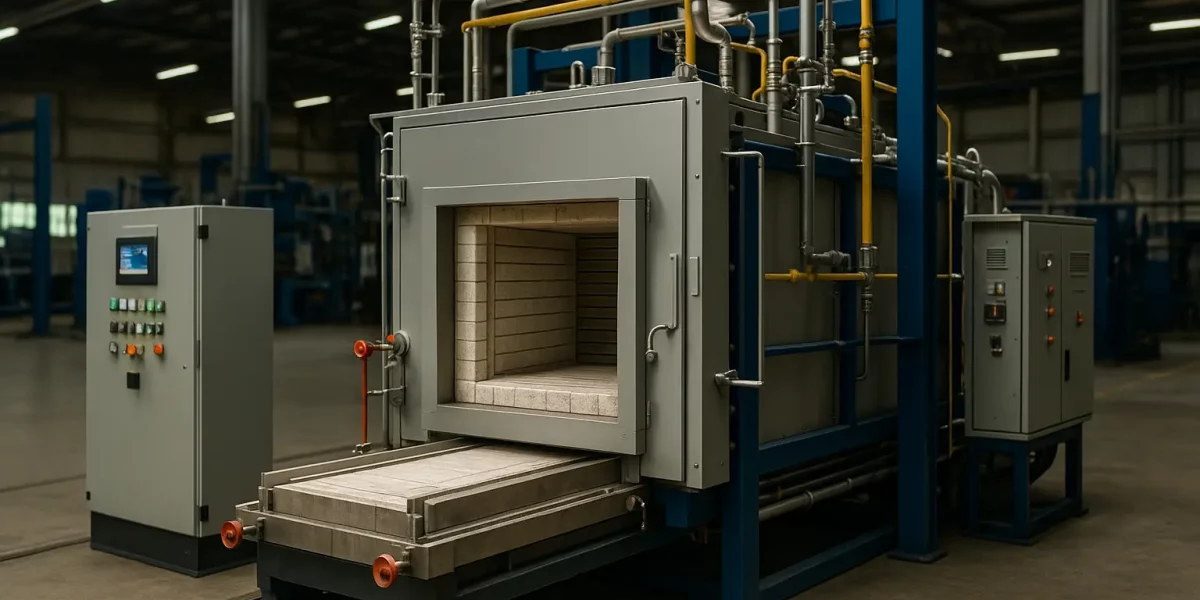
In today’s rapidly evolving manufacturing landscape, the need for precision, consistency, and efficiency in heat treatment is more crucial than ever. While cost-effective and widely available, standard heat treatment furnaces often fall short when meeting the specialized requirements of advanced industries like aerospace, automotive, and defence. This is where custom-built furnaces, such as those designed by Precons Furnaces, bring a decisive edge.
The Limits of Off-the-Shelf Furnace Solutions
Standard furnaces are designed to meet general-purpose needs. They operate on fixed temperature ranges, fixed chamber sizes, and uniform airflow distribution systems that may not align with specific material science or product geometry demands. For industries with tight tolerances, variable workloads, or diverse product shapes and sizes, this rigidity can lead to:
- Uneven heat distribution
- Inconsistent metallurgical properties
- Higher cycle times and energy inefficiencies
- More frequent maintenance issues
Ultimately, these limitations impact both product quality and operational ROI.
The Custom Advantage: Tailored for Your Process
Custom-built furnaces are engineered from the ground up based on a client’s specific heat treatment process, load size, thermal profile, energy goals, and compliance needs. They are not one-size-fits-all—they’re one-size-fits-YOU.
Key Advantages of Custom Furnace Solutions:
Precision Performance:
Custom furnaces are configured for exact temperature zones, heating rates, and atmosphere controls, ensuring that material properties meet exact specifications.
Optimized Energy Consumption:
By tailoring insulation thickness, heat recovery modules, and heating systems, Precons Furnaces reduces unnecessary thermal losses and lowers your energy bills.
Space and Workflow Integration:
Instead of redesigning your shop floor around your furnace, Precons designs the furnace around your existing workflow—maximizing operational efficiency.
Reduced Downtime & Maintenance Costs:
With robust design customization and remote diagnostics, these systems are easier to maintain and deliver higher uptime over generic models.
Scalability & Future-Proofing:
Precons furnaces can be engineered for modularity, making it easier to upgrade components, integrate IoT sensors, or adapt to new processes as your business evolves.
Precons Furnaces: Engineering Precision Into Every Furnace
With over two decades of engineering expertise, Precons Furnaces is a trusted leader in designing and manufacturing tailor-made heat treatment systems for critical applications. From roller hearth furnaces for continuous operations to gas-tight sealed quench furnaces for atmosphere control, Precons has demonstrated the power of customization.
Every furnace is designed closely with the customer, incorporating finite element thermal simulations, custom PLC control systems, and robust material selection based on application stress loads and operating cycles. This results in reliable systems built to outperform and outlast.
Case in Point: Precision Die Components
For high-precision rotary dies and industrial tool components, companies like Precons depend on ultra-consistent metallurgical characteristics. Partnering with furnace providers like Precons enables them to achieve repeatable heat treatment cycles—ensuring superior tool life, hardness profiles, and surface finishes. Custom-built furnace setups are essential for such demanding applications.
Conclusion
If you want to elevate your thermal processing capabilities, sticking with a generic furnace might be holding your operations back. Custom-built solutions, especially those from Precons Furnaces, provide the technical sophistication, flexibility, and ROI needed for next-gen manufacturing. When precision matters, custom always wins.
Ready to upgrade your heat treatment capabilities? Contact Precons Furnaces today for a custom-engineered solution that fits your process, space, and performance goals.